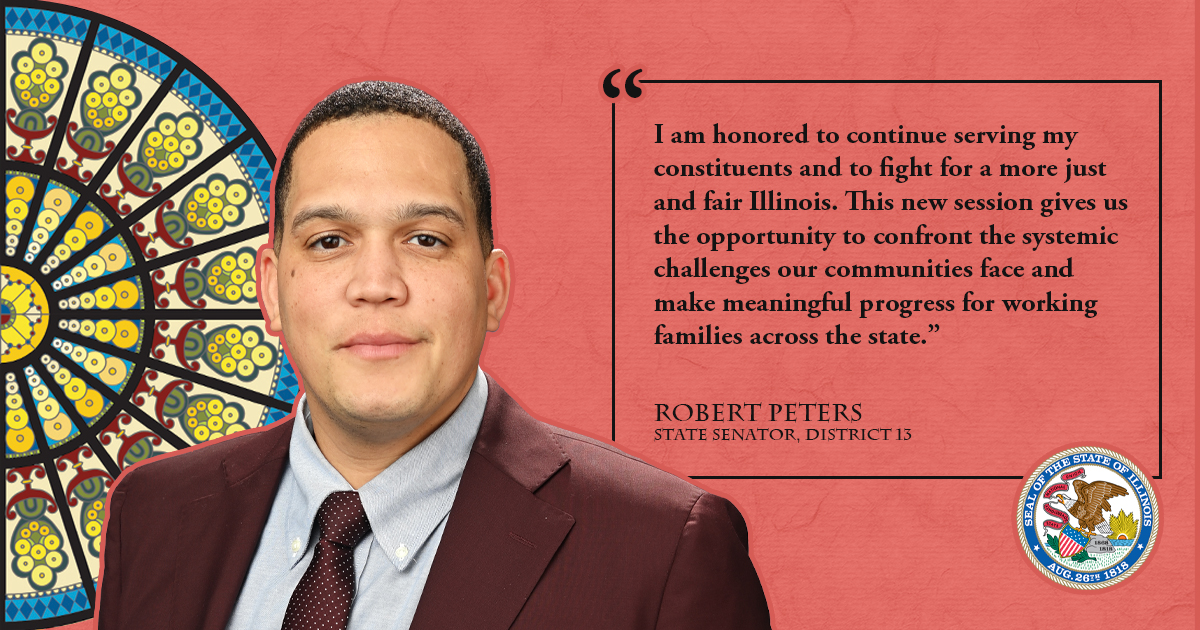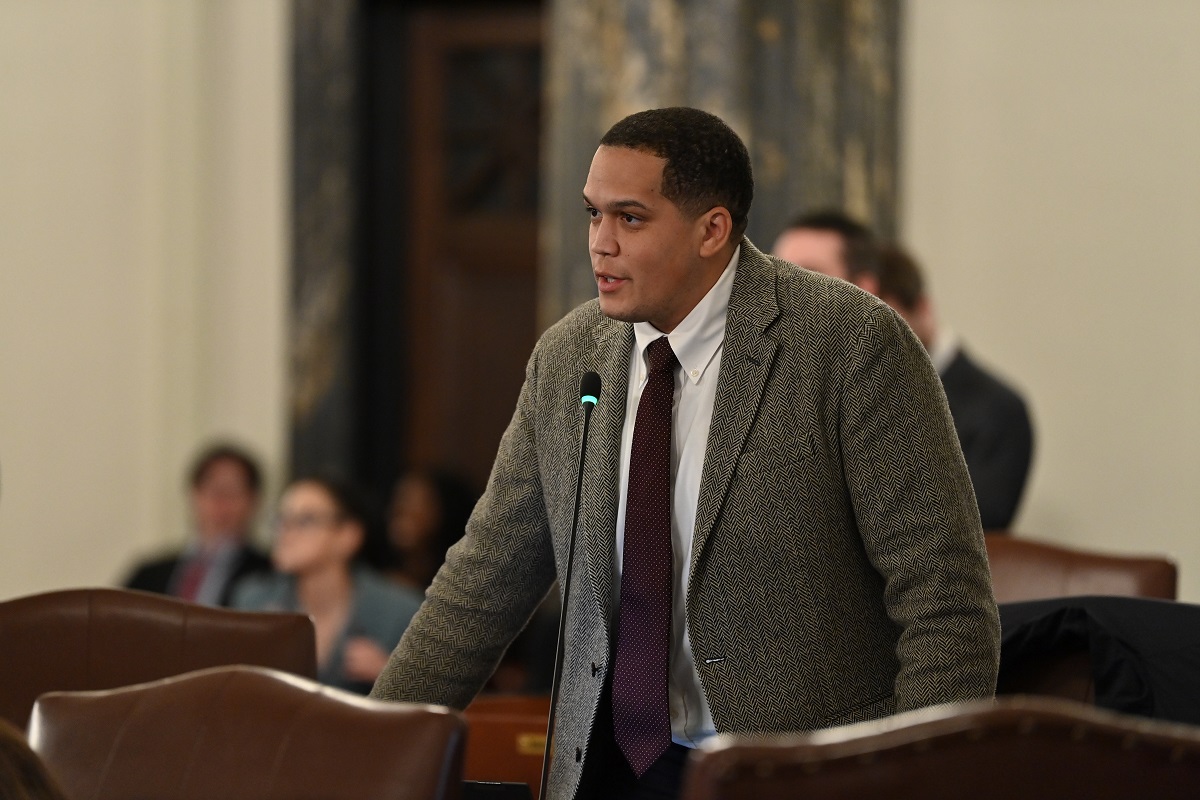South Side public officials react to closure of three Walgreens locations in district
- Details
- Category: Press Releases
 CHICAGO — In October of 2024, Walgreens announced it would close roughly 1,200 locations over the next three years – including 500 closures in fiscal year 2025 alone – causing concern for those who frequent the stores for groceries and prescriptions. In response to learning that three of these closures will happen in their districts, State Senator Robert Peters, State Representative Kam Buckner, State Representative Curtis J. Tarver and Aldermen Lamont Robinson, Desmon Yancy and Peter Chico released the following statement:
CHICAGO — In October of 2024, Walgreens announced it would close roughly 1,200 locations over the next three years – including 500 closures in fiscal year 2025 alone – causing concern for those who frequent the stores for groceries and prescriptions. In response to learning that three of these closures will happen in their districts, State Senator Robert Peters, State Representative Kam Buckner, State Representative Curtis J. Tarver and Aldermen Lamont Robinson, Desmon Yancy and Peter Chico released the following statement:
“The closures at our South Commercial Avenue, South King Drive and South Jeffrey Boulevard Walgreens locations will be a devastating blow to our communities. Walgreens started in or near our districts in South Side Chicago at Cottage Grove and Bowen Avenue 124 years ago. For years, these stores have supported residents, providing access to medications, groceries and other essential services.
“Corporate chains like Walgreens have driven mom-and-pop pharmacies out of business, consolidating control over vital services in our neighborhoods. Now, as they abandon these communities, they are leaving behind pharmacy deserts that make it even harder for working families to access the care they need.
“Their actions are robbing our neighborhoods of essential resources while prioritizing profits over people. We will fight to hold these corporations accountable and ensure our communities are not left behind. The South Side deserves better.”
Peters sworn in during 104th General Assembly inauguration
- Details
- Category: Press Releases
 SPRINGFIELD — State Senator Robert Peters (D-Chicago) was sworn in to represent the 13th District on Wednesday as the Illinois Senate officially began the 104th General Assembly. He released the following statement:
SPRINGFIELD — State Senator Robert Peters (D-Chicago) was sworn in to represent the 13th District on Wednesday as the Illinois Senate officially began the 104th General Assembly. He released the following statement:
“I am honored to continue serving my constituents and to fight for a more just and fair Illinois. This new session gives us the opportunity to confront the systemic challenges our communities face and make meaningful progress for working families across the state.
“My priorities this term include reforming our criminal and juvenile justice systems, advocating for workers’ rights, expanding affordable housing opportunities and advancing social justice matters.
“The public has made it clear that we must look out for their financial and economic needs. I’m eager to work with my colleagues to address these challenges and deliver solutions that reflect the values of our district and state, ensuring every resident can thrive.”
Peters measure to increase transparency in solitary confinement practices passes Senate
- Details
- Category: Press Releases
 SPRINGFIELD — A measure championed by State Senator Robert Peters aims to shed light on the use of restrictive housing, requiring the Illinois Department of Corrections to collect and publicly share data on how often and why people are placed in solitary confinement.
SPRINGFIELD — A measure championed by State Senator Robert Peters aims to shed light on the use of restrictive housing, requiring the Illinois Department of Corrections to collect and publicly share data on how often and why people are placed in solitary confinement.
“Transparency is the foundation of accountability,” said Peters (D-Chicago). “By becoming more informed on how restrictive housing is used, we can ensure the system treats individuals fairly and humanely while holding our institutions to the highest standard of oversight.”
“Restrictive housing” is another phrase for solitary confinement – a form of housing that separates an individual in custody from the general population. The bill responds to growing concerns about the lack of publicly available data on solitary confinement practices in state facilities. Recent surveys conducted by the John Howard Association found that 42% of incarcerated individuals reported spending excess time in their cells, often not meeting the daily required minimum of two hours outside their sleeping area.
Peters resolution supports Community Preservation Plan for Promontory Point in Burnham Park
- Details
- Category: Press Releases
 SPRINGFIELD — To support the preservation of Promontory Point, a historic landmark in Burnham Park, State Senator Robert Peters passed a resolution which aims to restore and protect the Point’s historic limestone retaining wall while ensuring public access and ecological sustainability.
SPRINGFIELD — To support the preservation of Promontory Point, a historic landmark in Burnham Park, State Senator Robert Peters passed a resolution which aims to restore and protect the Point’s historic limestone retaining wall while ensuring public access and ecological sustainability.
“Promontory Point is a valued piece of Chicago’s history and an important public space for residents and visitors alike,” said Peters (D-Chicago). “This resolution reflects our commitment to preserving its character while addressing shoreline erosion in a way that respects the community’s voice.”
Promontory Point is a 40-acre, man-made peninsula located at the south end of Burnham Park. Listed on the National Register of Historic Places in 2018 and designated a Chicago landmark in 2023, the Point has long been at the center of preservation conversations. A 2002 proposal from the city of Chicago and the Chicago Park District sought to replace its historic limestone components with concrete and stone, sparking community opposition.
More Articles …
Page 17 of 96





